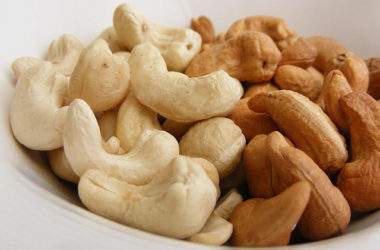You’ve heard people say over and over again: breakfast is the most important meal in a day. And for good reason. After long hours of sleep, the body needs to refuel the energy it had lost in breaking down and absorbing the meal you had that night before going to bed.
But breakfast offers more than a chance to refuel the body for the day’s activities. For weight watchers, breakfast helps set the tone for the day. If you start your day with healthy food choices, you’re more likely to stick to healthier choices throughout the day. Here are 5 tips to make sure that your breakfast is a healthy one.
Tip #1: Don’t skip breakfast.
Most people skip breakfast thinking they’re cutting down on calories. Skipping breakfast will only make you feel hungrier later and you’ll be more apt to nibble on junk or eat larger portions at later meals, thus running your day’s total calorie higher than what you’ve intended.
Research also reveals that people who eat breakfast regularly are leaner than those who start the day on an empty stomach. According to the US National Weight Control Registry, people who have successfully kept unwanted pounds for as long as six years or at least a year reported as to having breakfast as a daily habit. Seventy-eight per cent of these people ate breakfast every day, while almost 90% reported that they ate breakfast at least five times a week.
Tip #2: Eat breakfast to jumpstart your metabolism.
Your metabolism slows down during sleep because your body requires less energy during this time. Eating breakfast initiates thermogenesis, which is the metabolic process of breaking down and absorbing food. Keeping your body in a constant state of thermogenesis increases your metabolism, promoting weight loss.
Tip #3: Eat protein at breakfast.
Eating protein at breakfast increases satiety and helps stave off hunger for longer periods. Heather Leity from the University of Missouri compared the benefits of eating a high-protein breakfast at 35-45g of protein wit breakfast at 18g of protein. Her study revealed that people who ate a high-protein breakfast reported feeling less hungry later in the day than those who did not eat a high-protein breakfast.
Feeling fuller as a result of eating protein at breakfast helps you to make healthy food choices later on the day and helps reduce unhealthy snacking on high-fat and high-sugar foods.
While a high-protein breakfast may be beneficial, it is equally important to choose protein sources that are not high in saturated fat. Opt for lean protein choices such as lean ground beef, egg whites, skim milk or low-fat yogurt. Lean meat selections offer the benefits of a high-protein breakfast without weight gain or the detrimental effects of increased cholesterol levels as a result from eating high-fat protein sources.
Tip #4: Add fiber to your breakfast.
Fiber is a form of carbohydrates that the body can’t break down into sugars. As a result, it passes through the body undigested. Thus, eating fiber at breakfast makes you feel fuller longer and on fewer calories.
A study published in the journal Appetite compared the satiety or fullness factor of apple sauce, apples and apple juice with added fiber. The study showed that people who ate apples before lunch ate 15% fewer calories than those who ate apple sauce or had apple juice, suggesting that fiber from whole apples are more filling as compared to other fiber choices.
Tip #5: Observe portion sizes.
Breakfast should fill you up, but not at the expense of your portion sizes. Keep within your target total calorie intake and observe portion sizes. Distribute your nutrient sources so that your breakfast includes a high-fiber carb, lean meat, healthy fat and color, i.e. fruits or vegetables.













